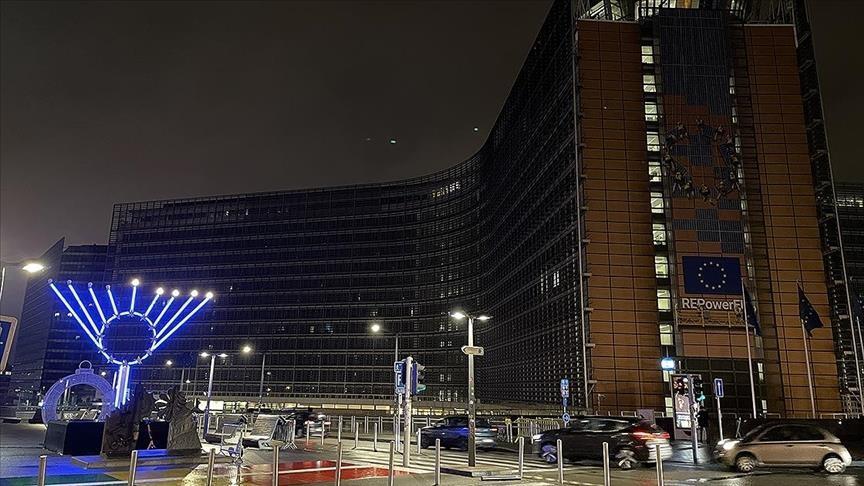The global energy crisis remained a hot topic in 2022 as countries in Europe took measures to cope with rapidly increasing natural gas and electricity prices after economic sanctions were imposed on Russia over the Ukraine war.
Some measures suggested by European politicians also made headlines and were criticized.
- Spanish PM: Ditch necktie to save energy
Spain’s Prime Minister Pedro Sanchez offered a creative proposal to save energy by keeping cooler: Ditching the necktie.
'I would like you to note that I am not wearing a tie. That means that we can all save from an energy point of view,' Sanchez said at a news conference on July 29.
He called on ministers and office workers to ditch their ties as one way to tackle the energy crisis.
'And I would also like to ask the private sector that, if they haven't done it yet, when there is no need, they should not either wear a tie because, in that way, we will all be contributing to the energy savings that are so necessary for our country.'
Sanchez more likely intended to draw attention to cooling costs despite the controversy over how ditching ties would contribute to energy savings.
- Swiss energy minister: Shower together to save power
Switzerland’s Environment Minister Simonetta Sommaruga suggested residents shower together to save energy.
In an interview, Sommaruga said that people could 'turn off the computer when you don’t need it, or turn off lights, or shower together.”
Sommaruga was trying to promote the government’s power-saving plan but came under fire.
She responded to the backlash by saying that she just wanted to 'raise awareness' over the country's energy-saving plan.
- Thuringian state parliament in Germany offers blankets to MPs
The Thuringian state parliament sent blankets to MPs at a meeting on Sept. 22 to keep them warm amid cold temperatures.
'It’s already very cold here,' the president of the Thuringian state parliament, Birgit Pommer, said at the plenary session in Erfurt.
'We now have a few blankets that are there. Maybe leave them for the women for now.'
Germany limited the heating temperature to a maximum of 19C (66F) for a public building.
- Polish authorities encourage citizens to gather firewood from forests
The Polish government told citizens to gather firewood amid soaring energy costs.
'It is always possible, with the consent of foresters, to collect branches for fuel,' said Deputy Climate and Energy Minister Edward Siarka.
He noted that amid “the war in Ukraine and turmoil on the energy market,” inquiries to local forestry units about obtaining permission to collect firewood had increased.
'Our priority has been to ensure that local communities have precedence in the self-sourcing of wood,' he said.
In addition to Poland, many East European countries such as Hungary, Latvia, Estonia, Slovakia and Romania relaxed logging rules, encouraging cutting trees to save gas.
- European countries impose measures against energy crisis
European countries took measures including limiting energy prices, reducing taxes and lowering temperatures in public buildings to cut energy costs.
France decided to limit heating and cooling levels in public buildings with no lower than 26C (78F) for air conditioners and no higher than 19C (66F) for heaters.
Shops in France and Spain should turn off their lights from 1. a.m. to 6 a.m. while heating in public buildings in Hungary is limited to 18C (64F).
The use of heating systems for swimming pools in Germany is banned.
By Muhammed Enes Calli
Anadolu Agency
energy@aa.com.tr


